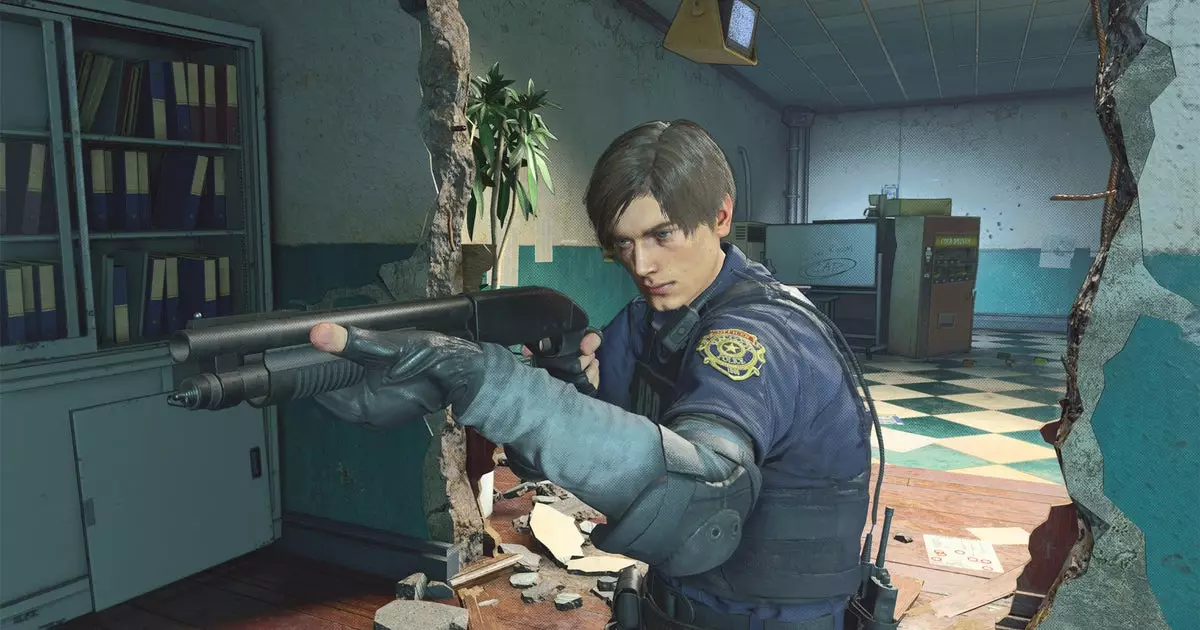Much like the film adaptations that leave devoted fans cringing in their seats, Capcom’s latest foray into the realm of multiplayer gaming has ended with a whimper. The demise of Resident Evil Re:Verse marks yet another chapter in the franchise’s storied history, revealing a conflict between nostalgic celebration and modern expectations. Launched as a tribute to the beloved horror series’ 25th anniversary, the game aimed to blend familiar characters and settings with a fresh multiplayer twist. However, its lack of player engagement and the swift closure of online services serves as a stark reminder that not all memories deserve to be celebrated on a grand scale.
For a series that has single-handedly defined survival horror, the shift toward multiplayer gameplay feels like a misguided detour. Re:Verse, which peaked at a paltry 2,080 concurrent players on Steam, proves that even the most beloved franchises must not underestimate the demand for compelling gameplay mechanics and robust community engagement. Capcom may spin this failure as a success, claiming the game served its anniversary purpose, but the reality is that true fans were largely left unenthused.
The Art of Nostalgia: A Double-Edged Sword
The glaring attempt to recapture the magic of older titles through nostalgic callbacks falls flat. Resident Evil Re:Verse, lauded as a “celebration,” incorporates aspects from previous games, such as transformations into famous antagonists. Nevertheless, it feels less like a fond homage and more like an awkward reminder that the series has historically struggled with multiplayer gameplay. Unlike cooperative experiences like Resident Evil 5, which offered exhilarating gameplay mechanics and immersive storytelling, Re:Verse showcased a disjointed assembly of borrowed elements lacking cohesion.
True to Capcom’s identity, the game was interspersed with fan-favorite characters but failed to create a sufficient engaging experience. Richard Cobbett’s summary of earlier attempts, like Operation Raccoon City, as “grindingly unenthusiastic” is perhaps more applicable here than Capcom would like to admit. While nostalgia can invoke powerful feelings, it requires deft handling to resonate with players. Alas, the half-hearted execution of Re:Verse appears to resonate merely as a cacophony of unconnected memories.
The Struggle for Multiplayer Identity
Multiplayer gaming presents a unique set of challenges, especially for an established franchise like Resident Evil. Capcom’s history with multiplayer titles is littered with both innovative attempts and misfires. While early games like Resident Evil Outbreak hinted at the collaborative potential of the series, the evolution toward a robust multiplayer experience has been stunted by a lack of clarity in vision.
Recent revelations from developer interviews hint at Capcom’s ongoing quest for a successful multiplayer formula that resonates with the community. The shift from Re:Verse to a new concept like Resident Evil Requiem — which shifts focus from cooperative play to survival horror elements crafted around a singular narrative — reflects Capcom’s trial-and-error approach. Yet, this frequently means the company is still casting about for a winning model. Ultimately, the mixed reception of multiplayer elements demonstrates just how difficult the balance between engaging storytelling and multiplayer interaction can be, especially in a series revered for its atmosphere-driven single-player escapades.
Lessons Learned, but at What Cost?
As Capcom faces the reality of Re:Verse’s closure, one must wonder about the consequences of chasing trends instead of honing the core experience that original fans hold dear. The combination of nostalgic elements and poor execution ultimately creates an unsettling narrative of loss and missed opportunities. This lesson should serve as a sage reminder: in the world of gaming, nostalgia is not enough to forge a successful title.
The demise of Resident Evil Re:Verse is not simply a story of a failed game; it’s about the ramifications of losing sight of what originally captivated audiences. With terrible serving sizes of multiplayer experiences and the emotional stakes attached to beloved franchises, perhaps it will finally dawn on developers that the best way to honor a legacy isn’t to dilute it, but to honor its roots. While Capcom persists in their ambitious journey, one hopes they will remember that sometimes, simplicity and sincerity trump the allure of all-new, flashy gimmicks.

